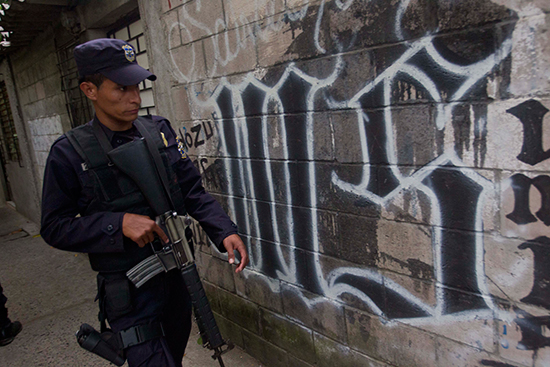Bogotá, Colombia, August 25, 2016 – Honduran prosecutors should cease pursuing criminal defamation charges against journalists, and lawmakers should swiftly repeal laws allowing for such prosecutions, the Committee to Protect Journalists said today. If his recent conviction on defamation charges is upheld on appeal, TV reporter Ariel Armando D’Vicente faces three years in prison and a three-year ban on practicing journalism.
D’Vicente, the host and general manager of the independent Libertad TV Channel 21’s news program “Prensa Libre” in the southern Honduran city of Choluteca, was sentenced by a local judge on July 26 but was informed of the decision only last week, the journalist’s defense attorney, Leonardo Rodas Contreras, told CPJ.
The journalist’s conviction sprang from a series of 2014 reports in which D’Vicente linked Lorgio Oquelí Mejía Tinoco, who was then police commander of the surrounding Choluteca department, to criminal gangs. D’Vicente told CPJ that he reported that Mejía and officers under his command took bribes from gangs involved in smuggling contraband cattle across Central America to Mexico.
Mejía denied D’Vicente’s accusations and sued him for defamation. D’Vicente, 48, who often reports on government corruption in Choluteca and who reported receiving death threats in 2012, said he plans to appeal.
“We urge Honduran authorities to drop all criminal defamation charges against Ariel Armando D’Vicente and withdraw the ridiculous ban on his work as a journalist,” said Carlos Lauría, CPJ’s senior program coordinator for the Americas, in New York. “Honduras must decriminalize the country’s archaic defamation laws, which are imposing serious restrictions on the media’s ability to report on issues of public interest.”
If the court’s verdict is upheld, D’Vicente could still avoid prison by paying 10 lempiras, or about 45 U.S. cents, for each day of his sentence. But D’Vicente told CPJ that he would not be able to survive financially if he were unable to practice his profession for three years. The court also ordered the journalist to pay Mejía’s legal fees.
Mejía, who is no longer Choluteca police commander but is still employed as a police officer, was investigated this year for unspecified reasons by an internal police disciplinary commission. The commission took no action against him, according to the daily newspaper El Heraldo.
Wendy Funes, who works for the Tegucigalpa-based press freedom group Committee for Free Expression, told CPJ that aside from convicting people under Honduras’s defamation laws–which make libel and slander criminal, rather than civil, offenses–judges are increasingly resorting to another provision that allows them to bar those convicted of defamation from practicing journalism.
In 2014, for example, Julio Ernesto Alvarado of the Globo TV station was convicted of criminal defamation and banned from reporting for 16 months. Funes told CPJ that several other Honduran reporters currently face similar charges of defamation and, if convicted, could be temporarily banned from reporting the news.
“This creates a legal precedent that other judges may follow,” she said.
Courts and lawmakers throughout the Americas have found that civil remedies provide adequate redress in cases of alleged libel and slander. CPJ research shows that some governments in the region continue to use criminal defamation laws to silence dissent.
For a comparative study of criminal defamation laws in the Americas, see CPJ’s campaign, Critics Are Not Criminals.
